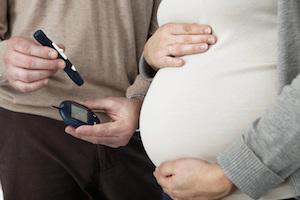Follow Us |Facebook
Call or Text for a Consultation
Study Links Hormonal Contraceptives to Gestational Diabetes
 A recent study has found a link between the use of hormonal contraceptives and gestational diabetes (GDM). GDM occurs in some women, typically around the 24th. week of pregnancy. Most women who have GDM did not have diabetes before they conceived. If left untreated, GDM can be harmful to the baby, who can be born with breathing problems, jaundice or very low blood glucose levels. Other side effects include hypoglycemia and preeclampsia in the mother, and a much higher risk of developing Type 2 Diabetes for both mother and baby.
A recent study has found a link between the use of hormonal contraceptives and gestational diabetes (GDM). GDM occurs in some women, typically around the 24th. week of pregnancy. Most women who have GDM did not have diabetes before they conceived. If left untreated, GDM can be harmful to the baby, who can be born with breathing problems, jaundice or very low blood glucose levels. Other side effects include hypoglycemia and preeclampsia in the mother, and a much higher risk of developing Type 2 Diabetes for both mother and baby.
The study was done by researchers in Missouri, who used the Pregnancy Risk Assessment Monitoring System (PRAMS). According to the Center for Disease Control and Prevention (CDC), the organization that developed the system, PRAMS is “a surveillance project of the CDC and state health departments. PRAMS collects state-specific, population-based data on maternal attitudes and experiences before, during, and shortly after pregnancy.”
Researchers looked at the data that was collected from 2,741 women between the years 2007 and 2008. They determined which contraception, if any, the women were using before they became pregnant. Contraceptives identified included:
- Hormonal contraceptives – These contraceptives work on a woman’s endocrine system to prevent pregnancy. The hormones may be in the form of a pill, in patch from, rings, injections and intrauterine devices (IUDs).
- Barrier contraceptives – These block sperm from entering the uterus. Common forms of these contraceptives are diaphragm, sponges, spermicides and condoms.
- Fertility awareness-based methods – There is no contraceptive involved. Instead, the woman tracks when she is ovulating in order to prevent pregnancy.
Of all the women who were tracked, almost nine percent developed GDM. Approximately 20 percent of those women had used some kind of hormonal contraceptive prior to pregnancy. There were other risk factors that were also discovered, including a woman’s age and weight when she becomes pregnant.
The study team said that although the research was not conclusive, it indicates that more research is needed. “Although researchers have not established a causal relationship between hormonal contraception use and gestational diabetes, results of our study suggest there may be an underlying correlating mechanism. More research is needed to assess hormonal contraception use as a potential risk factor,” they wrote in their report.
If you have had serious side effects from a drug that was prescribed to you, contact an experienced Orland Park personal injury attorney to find out what legal action you may be able to take.




